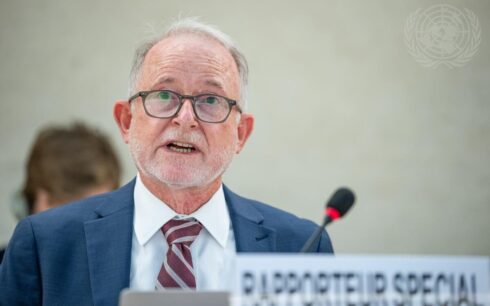The United Nations Human Rights Committee has ruled that Australia remains responsible for the arbitrary detention of asylum seekers redirected to offshore processing centers in Nauru.
The Committee published its findings on Thursday, addressing two cases involving refugees and asylum seekers subjected to prolonged detention under Australia’s controversial immigration policies.
Australia established offshore detention arrangements with Nauru through Memoranda of Understanding signed in 2012 and 2013, enabling asylum seekers intercepted at sea to be forcibly transferred to the Pacific island nation for processing.
Mahjoub El Haiba, a member of the UN Human Rights Committee, emphasized that outsourcing asylum processing does not absolve Australia of its human rights obligations. “Where a state exercises effective control over an area, its obligations under international law remain firmly in place and cannot be transferred,” he said.
The Committee’s findings highlight systemic failures in the treatment of asylum seekers detained in Nauru, including nationals of Iraq, Iran, Afghanistan, Pakistan, Sri Lanka, and Myanmar.
One case involved 24 unaccompanied minors intercepted by Australian authorities between 2013 and 2014 while fleeing persecution in their home countries. Initially detained on Christmas Island, an Australian territory, for up to 12 months, they were later transferred to Nauru’s Regional Processing Centre in 2014.
The UN report described overcrowded conditions in the Nauru facility, with inadequate water supply, sanitation, and healthcare, compounded by extreme heat and humidity. Many of the minors suffered severe physical and mental health deterioration, including depression, self-harm, kidney problems, insomnia, and weight loss.
Although almost all of the minors were granted refugee status by September 2014, they remained detained in Nauru, further exacerbating their suffering.
In a second case, the Committee highlighted the experience of an Iranian asylum seeker who arrived on Christmas Island in 2013 with her husband and family members. Seven months later, she was transferred to Nauru and detained at the same processing center under similarly harsh conditions.
The UN’s findings underscore the continued international criticism of Australia’s immigration policies, particularly the use of offshore detention. Human rights advocates argue that the prolonged and inhumane detention of asylum seekers contravenes Australia’s obligations under international law.





